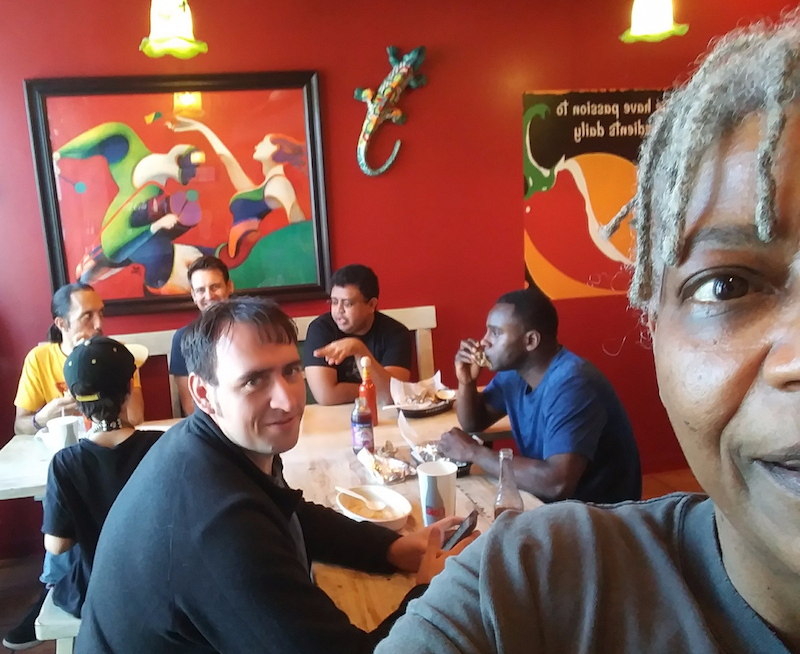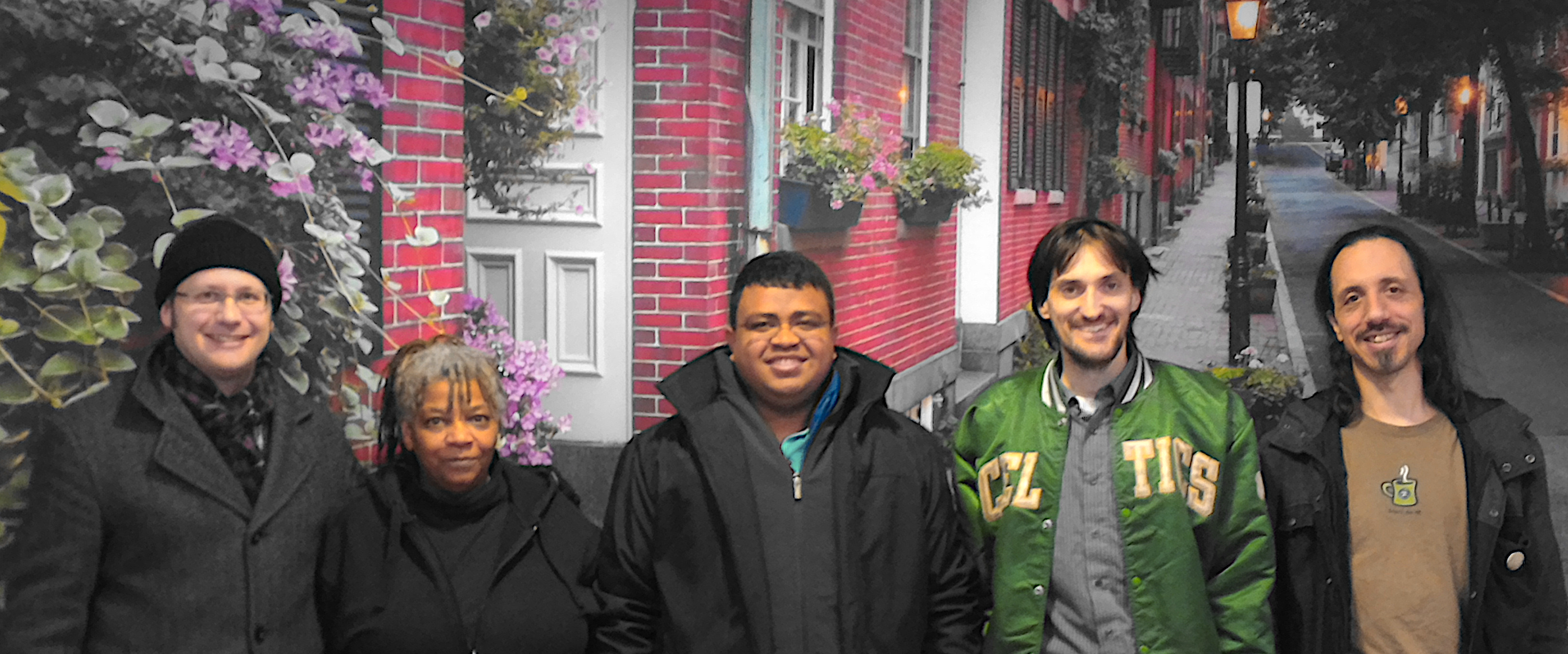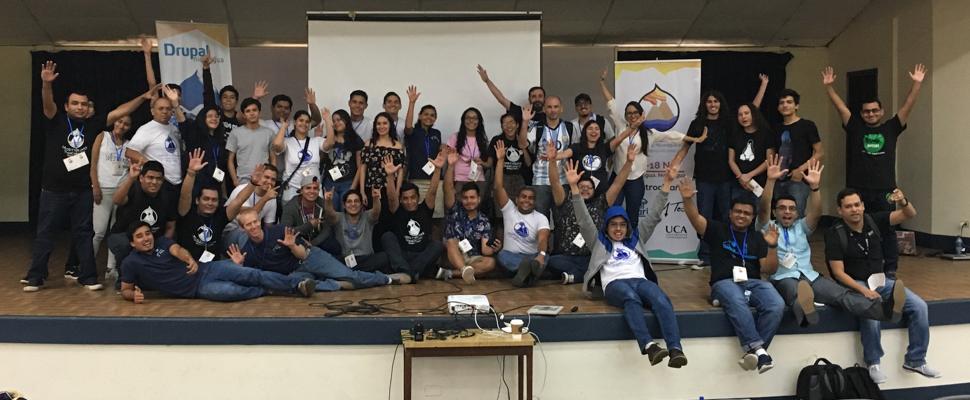
Cooperatives have many benefits to their members and communities. The transformation of the economy to one that works for all, likely requires a much greater role for cooperatives—worker owned cooperatives perhaps most of all. Marxist economist Richard Wolff has gone so far as to posit that the critical failing of past socialist revolutions has been not democratizing the workplace. Certainly, catalyzing a solidarity economy network will require as much of the economy and public infrastructure as possible to be under people's direct control.
Tech worker cooperatives have the potential to provide particularly crucial infrastructure for the communication and coordination necessary for a liberatory movement and a robust and just economy. In the meantime Agaric builds and improves platforms and websites…and sometimes does a bunch of other stuff on the side in an ongoing effort to empower people.
For example, Agaric has hosted a weekly Show and Tell for years. The format of this event has gone through many iterations. Originally Show and Tell was an internal technical discussion with short presentations from participants, and then it was opened to the public. Later it became a place where people discussed how to work more effectively together as a network of tech coops, and how to build pathways to help people get more involved in tech coops. Eventually, many of the wonderful people that we had many great conversations with over the years, including ourselves, would go on to participate in building the Patio community, a global federation of tech coops that work together on building software and community, and sharing work. Ever since then, Show and Tell hour has been repurposed as a public time and space to build our main pro-Bono project, scaling democratic communication (extending reach without losing control to intermediaries). VisionsUnite, a platform that asks the people looking for quality information, to play a role in curating the posts on the site, as a mechanism for filtering out less important information. The format of Show and Tell has changed over the years and each iteration reflects the importance we place on sharing a space for collaboration and knowledge sharing.

Alongside this evolution of Show and Tell, we can highlight a more important narrative—the maturation of the tech coop movement. Cooperators want to work together, and we feel this in every cooperative network that we belong to. And yet, it feels that tech coops are somewhat uniquely positioned in their capacity to build collaborative relationships across geographical and political boundaries. The iterations of Show and Tell correspond with the growth of the global tech coop network. The transition to using Show and Tell as a space for building Visions Unite was in part a response to the fact that some of the goals of Show and Tell were now being pursued under a larger entity and in a more appropriate space.
A frequent conversation in Patio surrounds the idea that we work together to build all of the infrastructure needed for coops and other solidarity aggregates, and it is exactly this and similar visionary conversations that keep us coming together year-to-year. This desire is kept alive, given the widespread dissatisfaction with corporate surveillance technologies. Many cooperators in the tech space are highly motivated to build and/or deploy privacy respecting alternatives, especially ones that are cooperatively owned or maintained.
It is a funny yet sensible irony, that those striving for a world of trust and transparency should feel morally obligated to work together to build and advocate for digital privacy. Certainly, this complex web of ideas is thought of from outside the tech coop space, but this seeming contradiction feels like a natural part of the role as a worker-owner of a tech coop. At this point it would be hard to count how many public meetings, workshops, and presentations Agaric (or some adjacent collaborators) have held or attended to discuss the importance of privacy and how to have it. Here are some links to a few past events and and a form to request a presentation by Agaric. We have built our reputation on sharing knowledge, so of course we host CommunityBridge, providing access to BigBlueButton, a free and open privacy protecting video chat platform where cooperators meet and host events. We use and recommend BBB as an alternative to Zoom surveillance.
Unfortunately, there is not an overabundance of money being moved to build the infrastructure that Agaric and our Patio collaborators envision. But between the relatively small amount of money that does make its way into great projects thanks to some beautiful and caring organizers, and the community of tech worker-owners that share a strong core set of values and spaces in each others lives, at least this little part of the coop movement puzzle feels like it is coming together. There are some large tech coops in the mix too! We are not alone in our efforts to unite and The Platform Cooperativism Consortium has shown some promising progress in a global effort for people to build platforms that we can all join and use. The University of Colorado is including some Tech coops perspectives in the curriculum via webinars.
Many tech cooperatives in the U.S.A. are members of The United States Federation of Worker-owned Cooperatives USFWC and we have a Tech Peer Network that meets once a month to check in with how things are going for their coop. We offer each other support on things that would come up in any business, from financial to personnel. We look forward to some future collaborations between members on projects. Agarics are also members of May First Movement Technology MFMT a member driven cooperative based in N.Y.C and Mexico City that delivers a suite of free software tool for members. We also have a team TIAS - Technical Infrastructure and Services, that includes all coop members to work on building software and platforms. May First is where you can truly see how autonomous technology is key to our mission, yet much of our work is not completely reliant on complex tech or anything beyond email, a phone call or text message group.
Agaric's newest community-focused project is centered on MeshNetworks. These networks will connect members of the cooperative movement and will be able to operate during an Internet outage. Using easy to assemble tech to connect people that are at a distance as more people in different locales set up nodes.
Aside from simply being a worker-owned cooperative, there are many other ways in which we incorporate our values into our work and our client relationships.
First and foremost is by practicing transparency and by being informative, whether in regard to our capabilities, the accuracy of a project estimate, or our politics. New clients often tell us that they came to us because they identified with our politics or ethos, they found a helpful blog on our site, or another of our clients referred them to us. Sometimes it can be hard to navigate the world and know who to trust or work with, but we at Agaric are enthused to have many well-founded and long-lasting relationships of trust with our clients, whose work we align with and are motivated to support.

Second is by leveraging Free/Libre Software as a tool of choice for cooperators. It makes sense that a movement for workplace democracy would be run on democratically licensed code. Building together we can also define a way to split the costs of building and maintaining software that can be used by many. As a tech cooperative, we use and develop a lot of software. We do not take this responsibility lightly. It is up to us to ensure that our technology treats us and our clients well. The time is ripe for more cooperative tech services to spring up and offer the tools needed to be successful in your online endeavors. Some would say we need a coop of coops, which to mind, Mondragon.
Much like any movement element, technology is a key factor in our success and if we collectively own our tools, we will not be pwned by any Corporate entity that locks us into their services to control our options. In many cases, Corporations ARE data brokers, or they work closely with brokers to sell our data, while charging us a fee. From opt-in data collection to the ability to analyze and quantify our own efforts, we need to be able to protect our privacy. Coops are coming together to support each other as worker-owned entities and we are building platforms together, we should always build privacy into our code. Cooperative/collaborative development is not yet a large and interconnected, organized effort, and Patio is just one example. The nature of the times is drawing people into more collaborative efforts. Then, there is also Facttic, which Patio continues to learn from. They are an Argentinian group that helps tech coops work together on projects and capacity needs for larger projects by matching workers with the right skills for a job, regardless of what cooperative they belong too. Solidarity in cooperatively built technology - Whether you are a developer or someone in search of development, getting in, looks like our only way out.
Citations
Micky Metts, Keegan Rankin, Benjamin Melançon (2024). Technology Cooperatives In The Movement - Where Are We Now?. Grassroots Economic Organizing (GEO). https://geo.coop/articles/technology-cooperatives-movement-where-are-we-now

Comments
Sarah
June 24, 2024, 9:58 pm
Keep it up!! 1 <3
mike hales
July 1, 2024, 3:39 pm
:) :)
Add new comment